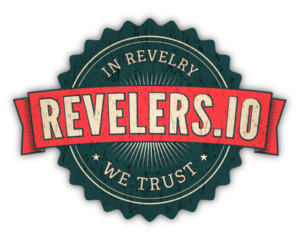Summary: MAPS is featured in an article on the front page of today’s edition of The New York Times!
Reporter Andrew Jacobs profiles MAPS Founder and Executive Director Rick Doblin, Ph.D., and highlights the success of MAPS’ first Phase 3 study of MDMA-assisted therapy for PTSD, the results of which were published in Nature Medicine earlier today.
“After decades of demonization and criminalization,” explains Jacobs, “psychedelic drugs are on the cusp of entering mainstream psychiatry, with profound implications for a field that in recent decades has seen few pharmacological advancements for the treatment of mental disorders and addiction.”
Originally appearing here in the New York Times.
It’s been a long, strange trip in the four decades since Rick Doblin, a pioneering psychedelics researcher, dropped his first hit of acid in college and decided to dedicate his life to the healing powers of mind-altering compounds. Even as antidrug campaigns led to the criminalization of Ecstasy, LSD and magic mushrooms, and drove most researchers from the field, Dr. Doblin continued his quixotic crusade with financial help from his parents.
Dr. Doblin’s quest to win mainstream acceptance of psychedelics took a significant leap forward on Monday when the journal Nature Medicine published the results of his lab’s study on MDMA, the club drug popularly known as Ecstasy and Molly. The study, the first Phase 3 clinical trial conducted with psychedelic-assisted therapy, found that MDMA paired with counseling brought marked relief to patients with severe post-traumatic stress disorder.
The results, coming weeks after a New England Journal of Medicine study that highlighted the benefits of treating depression with psilocybin, the psychoactive ingredient in magic mushrooms, have excited scientists, psychotherapists and entrepreneurs in the rapidly expanding field of psychedelic medicine. They say it is only a matter of time before the Food and Drug Administration grants approval for psychoactive compounds to be used therapeutically — for MDMA as soon as 2023, followed by psilocybin a year or two later.
After decades of demonization and criminalization, psychedelic drugs are on the cusp of entering mainstream psychiatry, with profound implications for a field that in recent decades has seen few pharmacological advancements for the treatment of mental disorders and addiction. The need for new therapeutics has gained greater urgency amid a national epidemic of opioid abuse and suicides.
“Some days I wake up and can’t believe how far we’ve come,” said Dr. Doblin, 67, who now oversees the Multidisciplinary Association for Psychedelic Studies, a multimillion dollar research and advocacy empire that employs 130 neuroscientists, pharmacologists and regulatory specialists working to lay the groundwork for the coming psychedelics revolution.
The nation’s top universities are racing to set up psychedelic research centers, and investors are pouring millions of dollars into a pack of start-ups. States and cities across the country are beginning to loosen restrictions on the drugs, the first steps in what some hope will lead to the federal decriminalization of psychedelics for therapeutic and even recreational use.
“There’s been a sea change in attitudes about what not long ago was considered fringe science,” said Michael Pollan, whose best-selling book on psychedelics, “How to Change Your Mind,” has helped destigmatize the drugs in the three years since it was published. “Given the mental health crisis in this country, there’s great curiosity and hope about psychedelics and a recognition that we need new therapeutic tools.”
The question for many is how far — and how fast — the pendulum should swing, and even researchers who champion psychedelic-assisted therapy say the drive to commercialize the drugs combined with a growing movement to liberalize existing prohibitions could prove risky, especially for those with severe psychiatric disorders, and derail the field’s slow, methodical return to mainstream acceptance.
Dr. Doblin’s organization, MAPS, is largely focused on winning approval for drug-assisted therapies and promoting them around the globe, but it is also pushing for the legalization of psychedelics at the federal level, though with strict licensing requirements for adult recreational use.
Numerous studies have shown that classic psychedelics like LSD and psilocybin are not addictive and cause no organ damage in even high doses. And contrary to popular lore, Ecstasy does not leave holes in users’ brains, studies say, nor will a bad acid trip lead to chromosome damage.
But most scientists agree that more research is needed on other possible side effects — like how the drugs might affect those with cardiac problems. And while the steady accumulation of encouraging data has softened the skepticism of prominent scientists, some researchers warn against the headlong embrace of psychedelics without stringent oversight. Although “bad trips” are rare, a handful of anecdotal reports suggest that psychedelics can induce psychosis in those with underlying mental disorders.
Dr. Michael P. Bogenschutz, a professor of psychiatry who runs the four-month-old Center for Psychedelic Medicine at NYU Langone Health, said most of the clinical studies to date had been conducted with relatively small numbers of people who were carefully vetted to screen out those with schizophrenia and other serious mental problems.
That makes it hard to know whether there will be potential adverse reactions if the drugs are taken by millions of people without any guidance or supervision. “I know it sounds silly but, Kids, don’t take these at home,” Dr. Bogenschutz said. “I would just encourage everyone to not get ahead of the data.”
The Rush to Invest
Psychedelics are suddenly awash in money.
Dr. Doblin can remember when research funding was nearly impossible to come by. But MAPS is flush now, having raised $44 million over the past two years.
“I spend a lot of my time saying no to investors,” said Dr. Doblin, whose work has been funded by an unlikely collection of philanthropists, among them Rebekah Mercer, the Republican political donor, and David Bronner, a liberal heir to the liquid soap company Dr. Bronners.
Johns Hopkins, Yale, the University of California, Berkeley, and Mount Sinai Hospital in New York are among the institutions that have recently established psychedelic research divisions or are planning to do so, with financing from private donors.
And scientists are conducting studies on whether psychedelics can be effective in treating everything from depression, autism and opioid addiction to anorexia and the anxieties experienced by the terminally ill.
More than a dozen start-ups have jumped into the fray, and the handful of companies that have gone public are collectively valued at more than $2 billion. Field Trip Health (FTRPF), a two-year-old Canadian company that trades on the New York Stock Exchange, has raised $150 million to finance dozens of high-end ketamine clinics in Los Angeles, Chicago, Houston and other cities across North America. Compass Pathways (CMPS), a Nasdaq-listed health care company that has raised $240 million, is conducting 22 clinical trials across 10 countries of psilocybin therapy for treatment-resistant depression.
Investors have been encouraged by the changing politics, a shift inspired in part by the nation’s accelerating embrace of recreational marijuana and by public weariness over America’s endless war on drugs. Last year, Oregon became the first state to legalize the therapeutic use of psilocybin. Denver, Oakland, Calif., and Washington, D.C., have decriminalized the drug, and several states, including California, are mulling similar legislation. Though the drugs remain illegal under federal law, the Justice Department has so far taken a hands-off approach to enforcement, similar to how it has handled recreational marijuana.
Even some Republicans, a group that has traditionally opposed the liberalization of drug laws, are starting to come around. Last month, the former Texas governor Rick Perry, citing the high rates of suicide among war veterans, called on his state’s legislators to support a Democratic-sponsored bill that would establish a psilocybin study for patients with PTSD.
“We’ve had 50 years of government propaganda around these substances, and thanks to the research and a grass-roots movement, that narrative is changing,” said Kevin Matthews, a psilocybin advocate who led Denver’s successful ballot measure.












